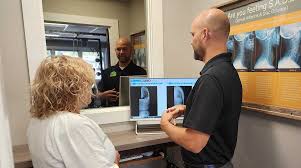Acid reflux occurs when stomach acid flows back into the tube connecting the throat and stomach, known as the esophagus. This event can lead to a variety of symptoms, and understanding these symptoms can help in identifying the condition. Here is more information on the symptoms associated with reflux:
Exploring Common Symptoms
The most frequently reported symptom of acid reflux is heartburn. This is a burning sensation in the chest that can move up toward the throat. It often occurs after eating, when lying down, or when bending over. The discomfort can range from mild to severe. Another common symptom is regurgitation, where a sour or bitter-tasting acid backs up into the throat or mouth. Individuals may experience this sensation without warning. Some additional physical symptoms can include:
- Dysphagia: A sensation of food being stuck in the throat or difficulty swallowing.
- Chest Pain: Discomfort in the chest area that can sometimes be mistaken for other conditions.
These symptoms typically arise from the direct effect of stomach acid on the lining of the esophagus. Their frequency and intensity can vary among individuals.
Identifying Less Obvious Symptoms
Acid reflux can also manifest through a set of symptoms that are not as widely recognized. These are sometimes referred to as atypical or extra-esophageal symptoms because they occur outside of the esophagus. A persistent dry cough, particularly one that worsens at night, can be an indicator. Some individuals may experience hoarseness or a change in their voice, as the stomach acid can irritate the vocal cords.
Other less common symptoms include a sore throat that does not resolve or the feeling of a lump in the throat, a condition known as globus sensation. In some instances, reflux can contribute to dental erosion, as the acid wears away tooth enamel over time. Bad breath, or halitosis, can also be a result of stomach acid reaching the mouth. Recognizing these less direct symptoms is part of a comprehensive understanding of the condition.
Knowing When to Seek Medical Advice
While occasional reflux is common, certain symptoms or patterns warrant a consultation with a healthcare professional. You should seek medical advice if you experience frequent or severe symptoms more than twice a week. A healthcare provider can conduct an evaluation to understand the underlying cause.
Specific signs may indicate a need for prompt medical evaluation. These include unintended weight loss, vomiting, or stools that appear black or tarry. Painful swallowing or chest pain that radiates to the arm, neck, or jaw also requires professional assessment. A medical professional can perform diagnostic tests to gather more information and recommend a management plan based on the findings.
Learn More About Acid Reflux
Identifying the symptoms of acid reflux involves recognizing both its common and less frequent manifestations. The most typical signs include heartburn and regurgitation, which result from acid irritating the esophagus. Atypical symptoms like a chronic cough, hoarseness, or a sore throat can also indicate the presence of acid reflux. For persistent, severe, or concerning symptoms, consulting a healthcare professional allows for proper evaluation and guidance.
- Choosing the Right Plastic Surgeon for Your Cosmetic Procedure
- Understanding Different Types of Laser Treatments for Skin Rejuvenation
- Why a Family Dentist is Key for Maintaining Oral Health
- The Benefits of Regular Visits to a Wellness Spa
- Exploring the Emotional and Psychological Triggers of Eating Disorders


Leave a Reply